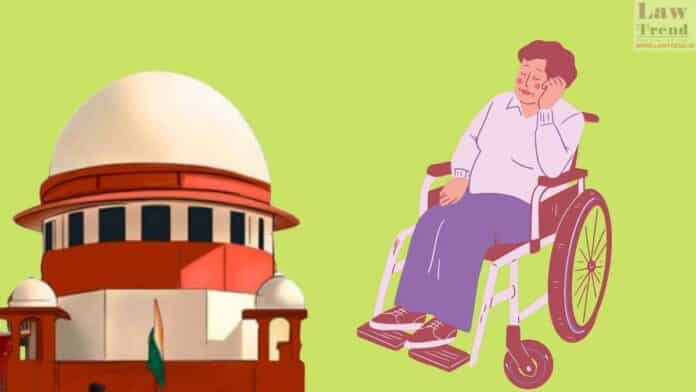The Supreme Court of India has taken a significant step by issuing notices concerning a Public Interest Litigation (PIL) aimed at the effective enforcement of the Rights of Persons with Disabilities Act, 2016 (RPWD Act). The PIL, led by Dr. Sanjay Jain, a law professor at the National Law School of India University (NLSIU) Bangalore and a disability rights advocate, calls for a robust implementation of the Act to safeguard the rights and dignity of individuals with disabilities.
The notice was issued by a bench including Chief Justice of India (CJI) DY Chandrachud and Justices JB Pardiwala and Manoj Misra. Dr. Jain, who has been visually impaired since birth, argues that despite the legislation’s intent, its execution has been lacking, leaving many disabled persons without the full rights and opportunities promised.
The RPWD Act was instituted to replace the 1995 Persons with Disabilities Act, aiming for greater inclusivity and equal opportunities. However, Dr. Jain’s petition underscores significant enforcement gaps across various states. These include delays in notifying essential rules and forming advisory boards essential for the Act’s effective functioning.*
Dr. Jain’s plea also brings to light various reports, such as those from the Disability Rights Foundation and the annual reports from the Office of the Commissioner for Persons with Disabilities, which collectively paint a picture of negligence and oversight in the implementation process. He contends that such deficiencies are not only procedural but also infringe on fundamental constitutional rights guaranteed under Articles 14, 15, 19, and 21.
Emphasizing a shift from a medical model of disability to a social model, Dr. Jain advocates for societal adjustments to accommodate disabilities, following the principles of disability scholar Tom Shakespeare. This model encourages viewing disability through the lens of social interaction and barriers rather than solely medical or biological challenges.
Furthermore, the PIL stresses the importance of better training and awareness among civil service officers about disability rights, aiming to foster a deeper, more empathetic understanding of the challenges faced by disabled individuals.




